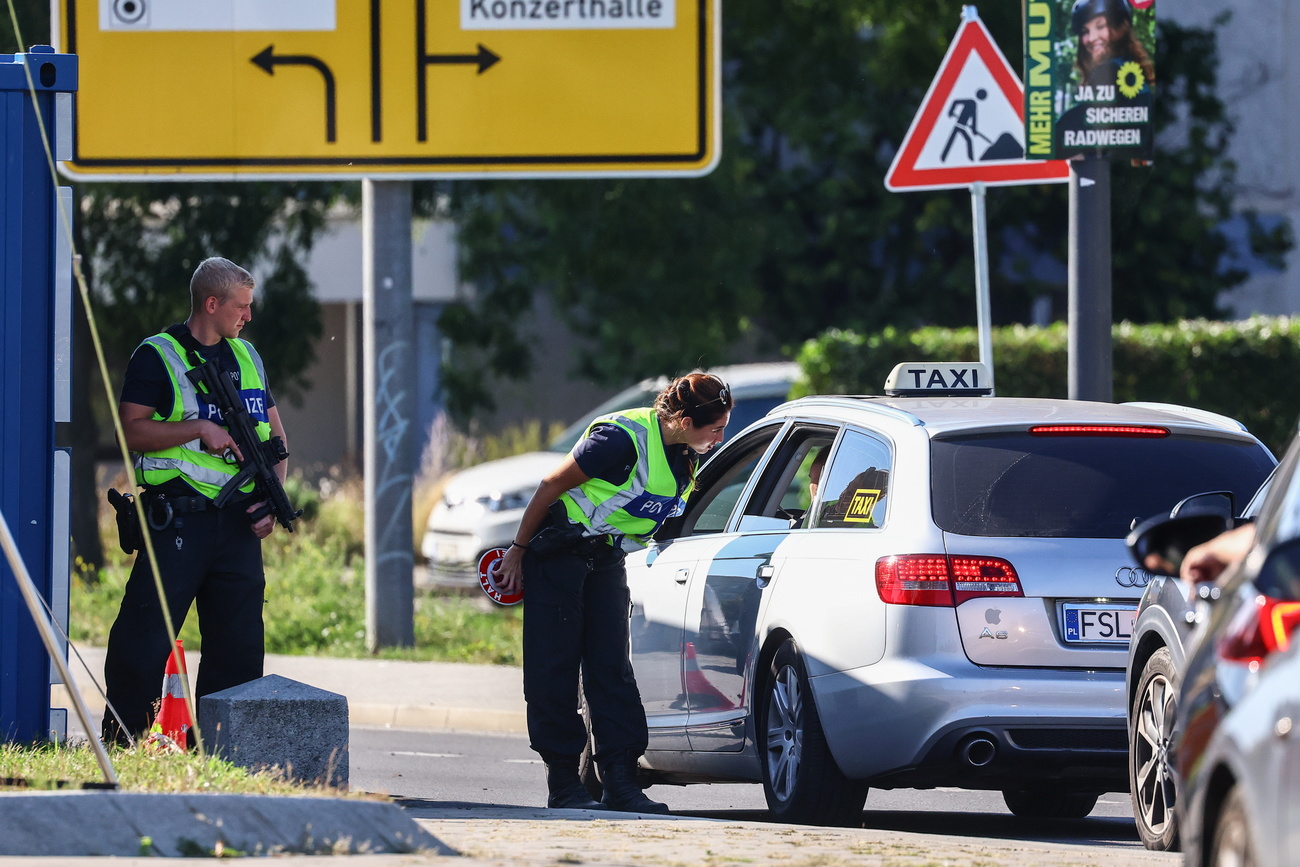
Most illegal entries to Germany in 2024 came via Switzerland

The German Federal Police detected 53,410 illegal entry attempts into Germany in the first nine months of this year, it was reported on Sunday. Most refusals to entry occurred at the borders with Switzerland, the German Bild am Sonntag newspaper said.
+ Get the most important news from Switzerland in your inbox
In all, 28,321 people were turned away at Germany’s land borders, according to a report in Bild am Sonntag.
Rejections are possible especially if someone does not request asylum or if a temporary re-entry ban applies. Border controls are not actually provided for in Europe’s Schengen area. Germany introduced special controls at various borders almost a year ago. The police speak of an illegal entry when a foreigner tries to cross the border without a valid residence permit.
+ Germany notifies the EU of border controls at the Polish, Czech and Swiss frontiers
According to the newspaper Bild am Sonntag, most of the rejections over the first nine months of the year occurred at the borders with Switzerland (9,113 people). They were followed by those with Poland (7,862 people), Austria (5,468) and France (2,350).
The most frequently rejected applicants were Ukrainians (5,935 people), Syrians (4,709) and Afghans (2,396).
German officials identified 1,482 deported migrants who attempted to re-enter the country despite the ban.
+ Explainer-How Germany plans to tighten border controls in immigration crackdown
In addition, 1,195 people smugglers were arrested and 1,088 people smuggling operations were uncovered. From January to September, German officials arrested a total of 7,783 people for whom outstanding arrest warrants were being executed.
+ Controls at Swiss border only temporary, says German minister
German Interior Minister Nancy Faeser justified the order for stationary controls at all land borders from mid-September on the grounds of irregular migration and protection against Islamist terrorists and cross-border crime. The borders with Denmark, the Netherlands, Belgium and Luxembourg were also affected by the expansion.
There were already controls at the border with France because of the Olympic Games in Paris, and there have been controls at the borders with Poland, the Czech Republic and Switzerland since mid-October last year. They were already introduced at the German-Austrian land border in autumn 2015.
Translated from German by DeepL/sb
This news story has been written and carefully fact-checked by an external editorial team. At SWI swissinfo.ch we select the most relevant news for an international audience and use automatic translation tools such as DeepL to translate it into English. Providing you with automatically translated news gives us the time to write more in-depth articles.
If you want to know more about how we work, have a look here, if you want to learn more about how we use technology, click here, and if you have feedback on this news story please write to english@swissinfo.ch.

In compliance with the JTI standards
More: SWI swissinfo.ch certified by the Journalism Trust Initiative

























You can find an overview of ongoing debates with our journalists here . Please join us!
If you want to start a conversation about a topic raised in this article or want to report factual errors, email us at english@swissinfo.ch.